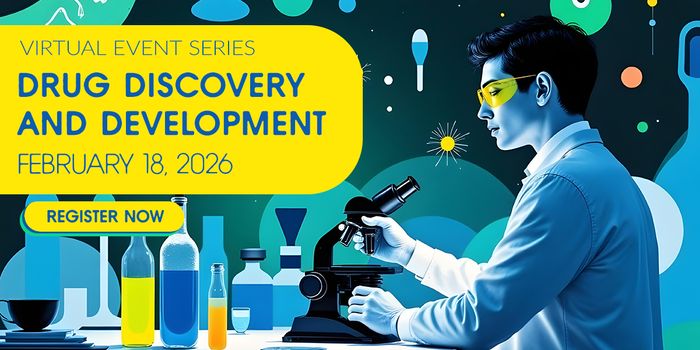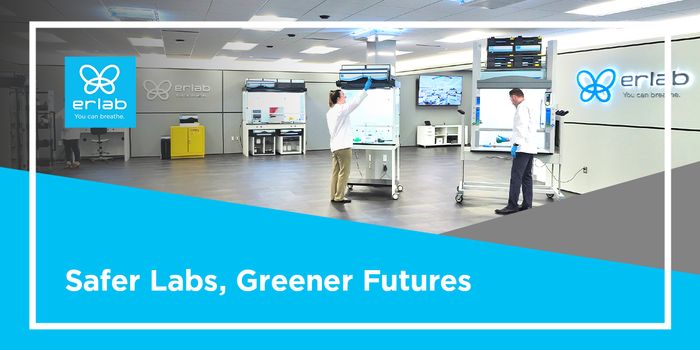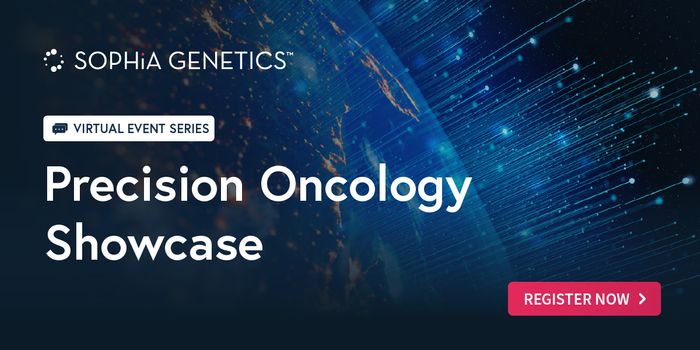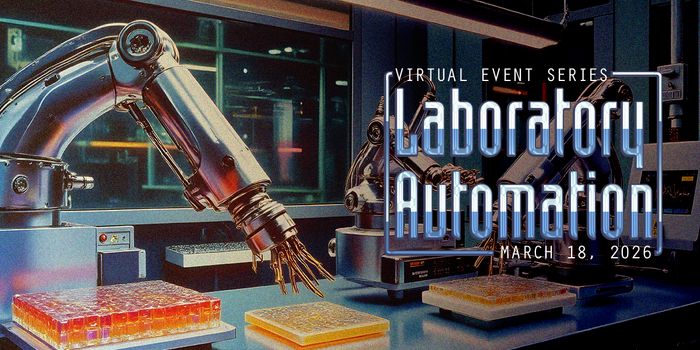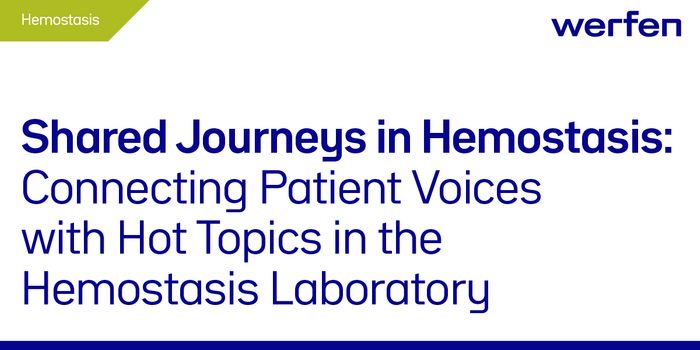Laboratory Animal Sciences Virtual Event Series 2021
This event is now apart of the Neuroscience Virtual Event Series.
Labroots is pleased to announce the 10th Annual Laboratory Animal Science Virtual Event Series which will take place on February 10, 2021. This is a premier online-only conference that will bring together scientists from basic sciences to bioinformatics, clinicians, veterinary technicians, veterinarians, technical support staff and compliance personnel from around the world to learn about recent advances and challenges in drug discovery and development.
The North American 3Rs Collaborative (NA3RsC) and New Jersey Association for Biomedical Research (NJABR) have planned a program to increase awareness and understanding of relevant 3Rs concepts (Refinement, Reduction, and Replacement). This year's theme is: From Theory to Practice, Tools & Considerations for Implementing the 3Rs.
Topics will include:
Preclinical Research
This track will cover tools and strategies available to implement the 3Rs for in vivo studies and measure success. You will hear from leaders in the field on a variety of topics including robust study design and refinements in animal handling and assessment.
Microphysiological Systems (MPS):
This track will provide an overview of available MPS technologies, considerations for using these technologies, and practical examples of application. MPS are emerging technologies (spheroids, organoids, and organs-on-chips) that hold potential to increase translation and possibly serve as replacement or reduction for some animal models.
Our virtual conference allows you to participate in a global setting with no travel or cost to you. The event will remain open for 2 years from the date of the live event, and the webinars will be available for unlimited on-demand viewing. This virtual conference also offers increased reach for the global scientific community with a high degree of interaction through live-streaming video and chat sessions.
Like the 2020 conference, this event will be produced on our robust platform, allowing you to watch, learn and connect seamlessly across all desktop or mobile devices. Equipped with gamification and point system, you can now move around the entire event, earning points for a chance to win one of LabRoots' most popular T-shirts.

Call for Posters — Virtual poster sessions offer the opportunity to present data to a global audience via a PDF poster and video summary and discuss results with interested colleagues through email. Plan now to have your poster included in the 2021 Laboratory Animal Sciences Virtual Event. You can submit your abstract here, and submission is free.
RACE Continuing Educational Credits
The 2021 conference has been approved by the American Association of Veterinary State Boards for Continuing Education for veterinarians and veterinary technicians to offer RACE CE credits, and will also meet AALAS and CALAS continuing education criteria.
Use #Lrlas to follow the conversation!
Agenda Share
-
FEB 10, 2021 9:00 AM PST
Keynote Presentation: The Use and Abuse of the 3Rs: Reflections on Art, Ethics and Science
F. Claire Hankenson, DVM, MS, DACLAM
Director and Attending Veterinarian, Campus Animal Resources, Professor, Pathobiology and Diagnostic Investigation, CVM, Michigan State UniversityBIOGRAPHY -
FEB 10, 2021 7:30 AM PST
Panel Presentation: Laboratory Animal Welfare Training Exchange: Laboratory Animal Science Virtual Training Tools
Jessica StukesB.S. Education and Training Manager, Duke UniversityKiirsa Pokryfke, M.S., C.M.A.R. Managing Director Training CoreUniversity of Michigan -
Experimental design strategies in primate trials that embrace the clinical schema to enhance translation
Melanie L. Graham, MPH, PhD
Robert and Katherine Goodale Chair in Minimally Invasive Surgery, Associate Professor, Department of Surgery, Medical School, Associate Professor, Department of Veterinary Population MedicineBIOGRAPHY -
How to improve rodent aseptic surgery at your facility using household products: Press N' Seal and Reynolds Wrap Foil
Raphael A. Malbrue, DVM, MS, CertAqV
Clinical Veterinarian, Assistant Professor- Adjunct, The Ohio State University College of Veterinary Medicine ,The Abigail Wexner Research Institute at Nationwide Children's HospitalBIOGRAPHY -
Human In Vitro Vascularized Tissue Models
-
Implementing iPSC-derived 3D neurospheroids for fast-tracking novel target and hit identification in a human-first drug discovery paradigm
-
Introducing 3R in drug development and toxicology: recent breakthroughs and perspectives from the lung-on-chip technology
-
Microengineered Biomimicry of Human Physiological Systems
Dan Dongeun Huh
Associate Research Fellow, Drug Safety Research and Development, Pfizer, Inc.BIOGRAPHY -
Microphysiological systems: Probing Neurological Disease
Roger D. Kamm
Cecil and Ida Green Distinguished Professor of Biological and Mechanical Engineering, Massachusetts Institute of TechnologyBIOGRAPHY -
Non-aversive handling methods for mice: Scientific evidence and challenges for implementation
Jane L. Hurst, PhD, OBE
Institute of Infection, Veterinary and Ecological Sciences, University of Liverpool, UKBIOGRAPHY -
Organoids & Toxins - from snakebite to DNA-damaging bacteria
-
Pharma collaboration to advance Microphysiological Systems
-
Refining Pain Management for Laboratory Mice
Paulin Jirkof, PhD
3R Coordinator, The Department for Animal Welfare, and 3Rs of the University of ZurichBIOGRAPHY -
The Experimental Design Assistant: an interactive web-based tool to provide bespoke feedback on experimental plans for in vivo studies
- Preclinical Research
-
Experimental design strategies in primate trials that embrace the clinical schema to enhance translation
Melanie L. Graham, MPH, PhD
Robert and Katherine Goodale Chair in Minimally Invasive Surgery, Associate Professor, Department of Surgery, Medical School, Associate Professor, Department of Veterinary Population MedicineBIOGRAPHY -
Non-aversive handling methods for mice: Scientific evidence and challenges for implementation
Jane L. Hurst, PhD, OBE
Institute of Infection, Veterinary and Ecological Sciences, University of Liverpool, UKBIOGRAPHY -
Refining Pain Management for Laboratory Mice
Paulin Jirkof, PhD
3R Coordinator, The Department for Animal Welfare, and 3Rs of the University of ZurichBIOGRAPHY -
How to improve rodent aseptic surgery at your facility using household products: Press N' Seal and Reynolds Wrap Foil
Raphael A. Malbrue, DVM, MS, CertAqV
Clinical Veterinarian, Assistant Professor- Adjunct, The Ohio State University College of Veterinary Medicine ,The Abigail Wexner Research Institute at Nationwide Children's HospitalBIOGRAPHY -
The Experimental Design Assistant: an interactive web-based tool to provide bespoke feedback on experimental plans for in vivo studies
-
FEB 10, 2021 7:30 AM PST
Panel Presentation: Laboratory Animal Welfare Training Exchange: Laboratory Animal Science Virtual Training Tools
Jessica StukesB.S. Education and Training Manager, Duke UniversityKiirsa Pokryfke, M.S., C.M.A.R. Managing Director Training CoreUniversity of Michigan -
FEB 10, 2021 9:00 AM PST
Keynote Presentation: The Use and Abuse of the 3Rs: Reflections on Art, Ethics and Science
F. Claire Hankenson, DVM, MS, DACLAM
Director and Attending Veterinarian, Campus Animal Resources, Professor, Pathobiology and Diagnostic Investigation, CVM, Michigan State UniversityBIOGRAPHY - Microphysiological Systems (MPS)
-
Microphysiological systems: Probing Neurological Disease
Roger D. Kamm
Cecil and Ida Green Distinguished Professor of Biological and Mechanical Engineering, Massachusetts Institute of TechnologyBIOGRAPHY -
Pharma collaboration to advance Microphysiological Systems
-
Implementing iPSC-derived 3D neurospheroids for fast-tracking novel target and hit identification in a human-first drug discovery paradigm
-
Organoids & Toxins - from snakebite to DNA-damaging bacteria
-
Human In Vitro Vascularized Tissue Models
-
Introducing 3R in drug development and toxicology: recent breakthroughs and perspectives from the lung-on-chip technology
-
Microengineered Biomimicry of Human Physiological Systems
Dan Dongeun Huh
Associate Research Fellow, Drug Safety Research and Development, Pfizer, Inc.BIOGRAPHY
Speakers Share
-
Szczepan Baran, VMD, MS
Head of Emerging Technologies, LAS, Novartis
BIOGRAPHY
-
Cassiano Carromeu, PhD
Director, Research and Development at StemoniX
BIOGRAPHY
-
Roger D. Kamm
Cecil and Ida Green Distinguished Professor of Biological and Mechanical Engineering, Massachusetts Institute of Technology
BIOGRAPHY
-
Dan Dongeun Huh
Associate Research Fellow, Drug Safety Research and Development, Pfizer, Inc.
BIOGRAPHY
-
F. Claire Hankenson, DVM, MS, DACLAM
Director and Attending Veterinarian, Campus Animal Resources, Professor, Pathobiology and Diagnostic Investigation, CVM, Michigan State University
BIOGRAPHY
-
James (Jay) Hoying, PhD
Chief Scientist, Advanced Solutions Life Sciences
BIOGRAPHY
-
Melanie L. Graham, MPH, PhD
Robert and Katherine Goodale Chair in Minimally Invasive Surgery, Associate Professor, Department of Surgery, Medical School, Associate Professor, Department of Veterinary Population Medicine
BIOGRAPHY
-
Jane L. Hurst, PhD, OBE
Institute of Infection, Veterinary and Ecological Sciences, University of Liverpool, UK
BIOGRAPHY
-
Kiirsa Pokryfke, M.S., C.M.A.R. Managing Director Training Core
University of Michigan
BIOGRAPHY
-
Jens Puschhof
PhD candidate in Hans Clevers's group at the Hubrecht Institute, NL
BIOGRAPHY
-
Nuria Roldan, PhD
Scientific Lead and Project Manager, AlveoliX
BIOGRAPHY
-
Jessica Stukes
B.S. Education and Training Manager, Duke University
BIOGRAPHY
-
Robert Vries, CEO
Hubrecht Organoid Technology (HUB)
BIOGRAPHY
-
Paulin Jirkof, PhD
3R Coordinator, The Department for Animal Welfare, and 3Rs of the University of Zurich
BIOGRAPHY
-
Raphael A. Malbrue, DVM, MS, CertAqV
Clinical Veterinarian, Assistant Professor- Adjunct, The Ohio State University College of Veterinary Medicine ,The Abigail Wexner Research Institute at Nationwide Children's Hospital
BIOGRAPHY
-
Dr. Esther Pearl
Programme Manager - Experimental Design, NC3Rs
BIOGRAPHY
-
ABSA International
ABSA International (ABSA) was founded in 1984 to promote biosafety as a scientific discipline and serve the growing needs of biosafety professionals throughout the world. Its goals are to provide a professional association that represents the interests and needs of practitioners ...
See more -
Envigo
Envigo provides the broadest range of research models and related services to the pharmaceutical and biotechnology industries, government, academia, and other life science organizations. As the largest organization that is solely dedicated to providing research models and related ...
See more -
North American 3Rs Collaborative (NA3RsC)
The North American 3Rs Collaborative (NA3RsC) is a nonprofit organization whose mission is to advance science, innovation, and research animal welfare. We facilitate collaborative opportunities to refine, reduce, and replace animals in research. We are unique in growing ...
See more -
New Jersey Association for Biomedical Research (NJABR)
Founded in 1989, the New Jersey Association for Biomedical Research (NJABR), a 501(c)(3) non-profit, is the only organization in New Jersey dedicated solely to advocating for the continued availability of appropriate research models. Our membership consists of key stakeholders ...
See more
Program Committee Share
-
Chairman - Szczepan Baran
Szczepan is a Comparative Medicine Veterinarian & Scientist turned "technology geek" who currently heads the Global Emerging Technologies (GET) within Comparative Medicine at Novartis. In this position, Szczepan leads integrated enterprise strategy for digital and non-digital ...
See more -
Natalie Bratcher
Natalie serves as 3Rs Scientific Liaison and Animal Welfare Specialist within AbbVie's Office of Global Animal Welfare. She earned a Master's degree in Cognitive and Behavioral Sciences from Illinois State University with an emphasis on applied behavior analysis. She's been with ...
See more -
Matthew Flegal
Matt entered the research field over 20 years ago as a lab animal technician at the TSI/Mason contract research facility. He has worked at both contract facilities such as TSI and OREAD Biosafety as well in industry at Pharmacia, Pfizer, and Sanofi-Aventis. During that period he ...
See more -
Megan LaFollette
Megan LaFollette is currently a 3Rs Fellow with The North American 3Rs Collaborative. She has her PhD in Animal Behavior & Well-Being from Purdue University, where she also received a Master of Science in Animal Welfare. Her primary interests lie at the intersection of ...
See more -
Tom Leach
Tom Leach is an experienced biomedical research advocate, lobbyist, and non-profit association manager. Tom serves as the executive director of the Pennsylvania Society for Biomedical Research and the New Jersey Association for Biomedical Research. Tom has more than 20 years ...
See more -
John Lowman
John Lowman manages North American Business Development at Mimetas, from the stateside office located in Gaithersburg, Maryland. John is a biomedical engineering by training, with a career focus on start-up and scale-up biotech companies positioned to make robust societal ...
See more -
Marcel Perret-Gentil
Dr. Perret-Gentil currently serves as University Veterinarian and Director of the Laboratory Animal Resources Center at the University of Texas at San Antonio. He is also the Attending Veterinarian for XENOSTART, Crown Scientific and the University of Texas of the Permian Basin ...
See more -
Laura Schaevitz
Laura Schaevitz, PhD, currently serves as VP at Recursion Pharmaceuticals. She is passionate about leveraging advanced sensor technology and machine learning capabilities to improve reproducibility and translatability of animal models. Drawing upon her expertise as a ...
See more -
Mary Ann Vasbinder, DVM
Mary Ann Vasbinder, DVM, DACLAM, is the Global Head of Laboratory Animal Medicine at GlaxoSmithKline in Upper Providence, PA, in the In Vivo Biological Platform Technologies group. She oversees the global veterinary program for the US and UK sites. In this role she has led ...
See more -
Pelin L. Candarlioglu, MSc, PhD
Pelin is a tissue engineer by training having received her PhD in the field from Imperial College London. Soon after, oncology presented itself as a more interesting area to move into which led to the PostDoc position about circulating tumour cells at the UCL. Since then she has ...
See more -
Sandra Engle, PhD
Dr. Sandra J. Engle is currently Senior Director at Biogen where she leads the Translational Cellular Sciences group. Her team uses human stem cells, genomic engineering, electrophysiology, and microphysiological systems to develop in vitro models to enable drug discovery for ...
See more
Event Series

Neuroscience Virtual Event Series 2027

Neuroscience Virtual Event Series 2026

Neuroscience Virtual Event Series 2025

Neuroscience Virtual Event Series 2024

Neuroscience Virtual Event Series 2023

Neuroscience Virtual Event Series 2022

Neuroscience Virtual Event Series 2021

Laboratory Animal Sciences Virtual Event Series 2020

Neuroscience Virtual Event Series 2020

Neuroscience Virtual Event Series 2019

Laboratory Animal Sciences Virtual Event Series 2019

Neuroscience Virtual Event Series 2018

Laboratory Animal Sciences Virtual Event Series 2018

Neuroscience Virtual Event Series 2017

Laboratory Animal Sciences Virtual Event Series 2017

Neuroscience Virtual Event Series 2016

Laboratory Animal Sciences Virtual Event Series 2016

Neuroscience Virtual Event Series 2015

Laboratory Animal Sciences Virtual Event Series 2015

Neuroscience Virtual Event Series 2014


















